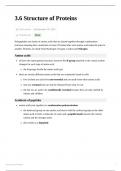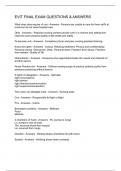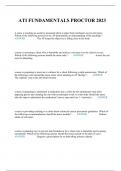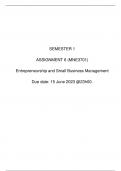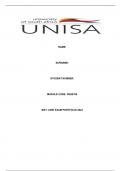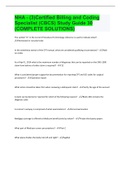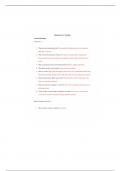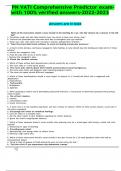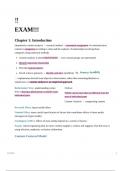3.6 Structure of Proteins
First review @September 30, 2023
Practise Q's Done
Polypeptides are chains of amino acids that are joined together through condensation
reactions meaning that a molecule of water if formed after each amino acid molecule joins to
another. Proteins are made from Hydrogen, Oxygen, Carbon and Nitrogen.
Amino acids
all have the same general structure, however the R-group attached to the central carbon
changes for each type of amino acid
the R-groups decide the amino acid type
there are twenty different amino acids that are commonly found in cells
five of them are said to be non-essential and are made from other amino acids
nine are essential and can only be obtained from what we eat
the last six are said to be conditionally essential because they are only needed by
infants and children
Synthesis of peptides
amino acids join together via condensation polymerisation
the hydroxyl group on one amino acid reacts with the carboxyl group on the other
amino acid to form a molecule of water and a peptide bond between the central
carbon and the nitrogen atom
this results in a dipeptide
3.6 Structure of Proteins 1
, condensation reaction between two amino acids to form one molecule of water and a peptide bond
when many amino acids join together they form polypeptides
this reaction is catalysed by the enzyme peptidyl transferase found in ribosomes
(the site of protein synthesis)
when the R-groups interact with each other they form different types of bonds which
cause the polypeptide bond to fold into complex structures that are proteins
the presence of different amino acids and R-groups leads to different proteins being
formed with different shapes
the specific shapes that proteins have enable them to carry out specific functions
within the body
Levels of protein structure
Primary structure
the sequence in which amino acids are joined together
determines the shape that the protein with be when the polypeptide folds
only bonds involved are peptide bonds
Secondary structure
oxygen, hydrogen and nitrogen atoms in the repeating structure of the amino acid
interact
hydrogen bonds may form within the amino acid chain between hydrogen and
oxygen atoms, causing it to coil into an alpha helix shape
3.6 Structure of Proteins 2
First review @September 30, 2023
Practise Q's Done
Polypeptides are chains of amino acids that are joined together through condensation
reactions meaning that a molecule of water if formed after each amino acid molecule joins to
another. Proteins are made from Hydrogen, Oxygen, Carbon and Nitrogen.
Amino acids
all have the same general structure, however the R-group attached to the central carbon
changes for each type of amino acid
the R-groups decide the amino acid type
there are twenty different amino acids that are commonly found in cells
five of them are said to be non-essential and are made from other amino acids
nine are essential and can only be obtained from what we eat
the last six are said to be conditionally essential because they are only needed by
infants and children
Synthesis of peptides
amino acids join together via condensation polymerisation
the hydroxyl group on one amino acid reacts with the carboxyl group on the other
amino acid to form a molecule of water and a peptide bond between the central
carbon and the nitrogen atom
this results in a dipeptide
3.6 Structure of Proteins 1
, condensation reaction between two amino acids to form one molecule of water and a peptide bond
when many amino acids join together they form polypeptides
this reaction is catalysed by the enzyme peptidyl transferase found in ribosomes
(the site of protein synthesis)
when the R-groups interact with each other they form different types of bonds which
cause the polypeptide bond to fold into complex structures that are proteins
the presence of different amino acids and R-groups leads to different proteins being
formed with different shapes
the specific shapes that proteins have enable them to carry out specific functions
within the body
Levels of protein structure
Primary structure
the sequence in which amino acids are joined together
determines the shape that the protein with be when the polypeptide folds
only bonds involved are peptide bonds
Secondary structure
oxygen, hydrogen and nitrogen atoms in the repeating structure of the amino acid
interact
hydrogen bonds may form within the amino acid chain between hydrogen and
oxygen atoms, causing it to coil into an alpha helix shape
3.6 Structure of Proteins 2

